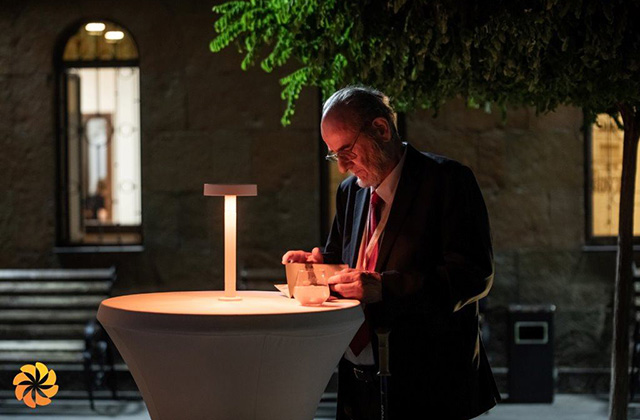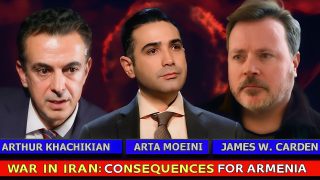Global Pandemics and Beyond Nation States?

So far the responses to the global COVID-19 pandemic have been for the nation-states of the world to mobilize resources and close their borders with other countries, even long-time neighbours. The intended goal is to isolate from outsiders who are perceived to be more sickly and thus a threat. Even in large, affluent countries, such as Canada and the United States, we are struggling with the magnitude of the overlapping medical, financial and economic crises.
As bad as things currently are in Europe in countries such as Italy and Spain and are likely to become in North America, I cannot help but think about smaller, less developed countries and how desperate conditions will become. In the recent past, during the Ebola crisis that greatly afflicted parts of Africa, the largely unaffected rest of the world was able to provide a critical helping hand.
But today, over 160 countries of the United Nations are undergoing dangerously turbulent times. As a political science professor, I learned to study and reflect on the Hobbesian realms of revolution, war, dictatorship, genocide and, to a lesser degree, post-conflict reconstruction.
As the grandson of an orphan of the Armenian Genocide, I recall hearing and reading about the long and painful precarious years in refugee camps in Greece, the Caucasus and the Middle East. Conditions were desperate. There was woefully insufficient food, shelter and medicines. Malnutrition and disease were rampant. The humanitarian organization Near East Relief provided an urgently-needed lifeline.
Today, I think about the millions of vulnerable inhabitants in overcrowded refugee camps in Syria, Turkey, Palestine and elsewhere. I worry about how, if at all, they will cope with the highly contagious and deadly COVID-19 pandemic. Will countless numbers of them become inevitable victims and become a catalyst for a second pandemic wave? The role of United Nations relief organizations and the World Health Organization is crucial in this regard. We need a global response to a virus that transcends national political borders. As Ernst Haas penned in his pioneering 1960s book Beyond the Nation-Sate: Functionalism and International Organizations, we will have to focus on a profound increase in the scope and capacity of international organizations that more effectively address critical human needs and functions.
Catastrophic events can become catalysts for profound paradigm change. Out of the muddy blood-filled trenches of World War One, idealism was rekindled in the creation of the League of Nations. Emerging from the nuclear devastation and bombed-out ruins of World War Two, the hope of the United Nations was born. In the aftermath of the deadly global corona virus COVID-19, what lessons might we learn and what would we do? Let us hope that they will be positive and visionary.
Politics and the Arts
Poems are part of our collective culture and should reflect on the world and its discontents. The artist, as a literary figure, has a leadership responsibility to be a voice for the vulnerable and less powerful. In so doing, one can help foster social change for the better. This is in the politically engaged tradition of twentieth century authors such as Bernard Shaw in the United Kingdom and Bertolt Brecht in Germany. As the grandson of an orphan of the Armenian Genocide, I have sought to convey the breadth and depth of the Armenian suffering, both past and present generations. Contemporary Turkish state genocide denial and menacing threats against those who write on genocide and human rights have added to the urgency and reasons for speaking out. My 2009 book Just Poems: Reflections on the Armenian Genocide was a response to such Turkish threats and misdeeds. These two poems reflect my ongoing concern about how we treat others and view the world.
Catastrophe and Rebirth
Catastrophic events can become catalysts for profound paradigm change.
Out of the muddy blood-filled trenches of World War One,
idealism was rekindled in the creation of the League of Nations.
Emerging from the nuclear devastation and bombed-out ruins of World War Two,
the hope of the United Nations was born.
In the aftermath of the deadly global corona virus COVID-19,
what lessons might we learn and what would we do?
Let us hope that they will be positive and visionary.
Waiting for the Virus
They say the virus is really dreadful
and will be coming ever so soon.
I don’t know what to do.
How can I prepare?
How bad will it become?
They say it will affect us all
and in so many ways.
And thus, in a national television address
the American president warned us.
He claimed it is a foreign virus
that comes from overseas.
He ordered the closure of our borders
to protect ourselves from them.
But, I fear the virus is already here.
It is amongst us.
It can be found
in what we say
and who we fear.
We’ve begun to close our hearts
and even our minds.
The virus is killing our humanity.
Somehow we must stop it,
before it is too late.
Alan Whitehorn is a professor emeritus of political science at the Royal Military College of Canada. In the 1990s, he was the JS Woodsworth professor of Humanities at Simon Fraser University in Vancouver. Over the past two decades, he has lectured extensively at Armenian universities and government departments. Recently, he received the Narekatsi medal from the Writers’ Union of Armenia and was selected as an Aurora Forum Goodwill Ambassador.
March 23, 2020

























